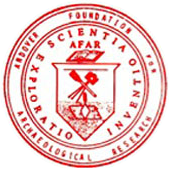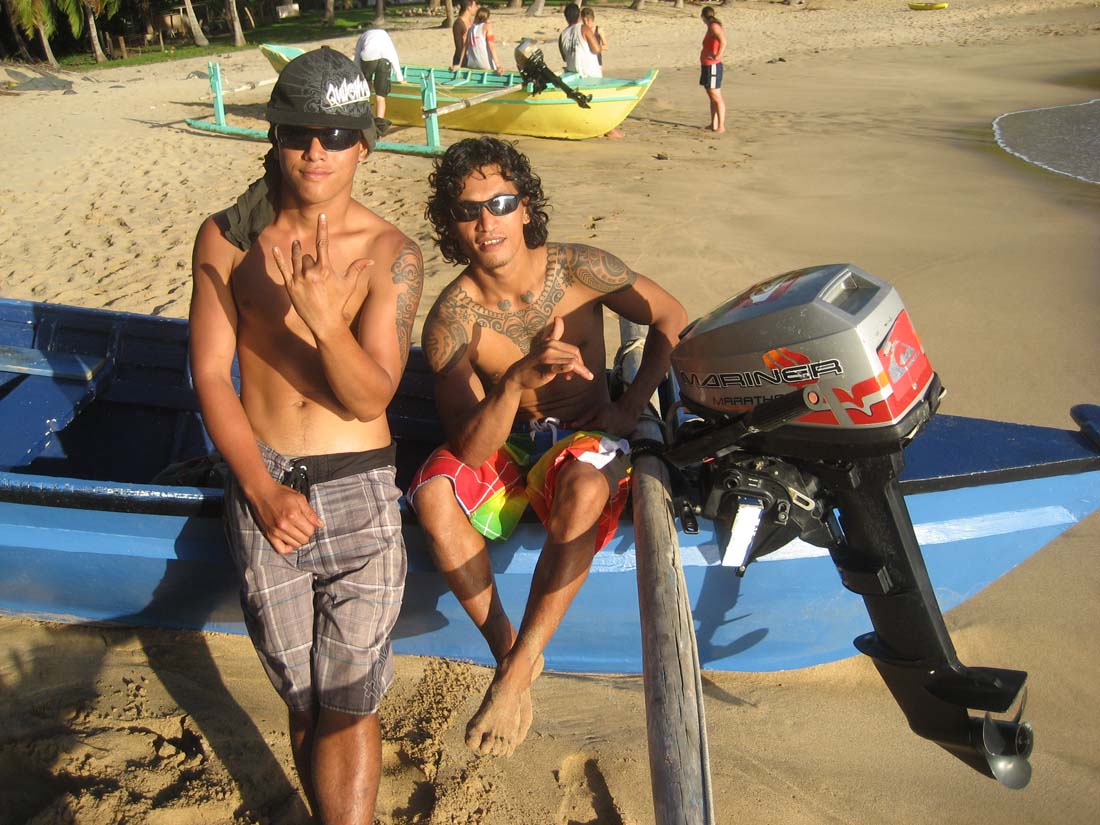Marquesas Project
Living Conditions
Joseph Barsinas of Vaitahu, a member of our field team.
Tahuata is a volcanic island with rugged terrain cloaked in tropical vegetation. There is no airport, so we fly to the neighboring island of Hiva Oa then take a boat to Tahuata. We will be the only non-Marquesans on the island and we will live in Vaitahu Village. The dominant language is Marquesan (a Polynesian dialect) but French is taught in the schools. Marquesans are in their element both at sea and on land. They are still mostly self sufficient through fishing, hunting, and planting. Unlike most other Polynesians, Marquesans never lost their land. There are no foreign land owners – the islands belong to the families that inhabit them. Marquesans also retain many other aspects of their traditional life, including the cultural practice of gift exchange and a rich history of oral traditions.
The cash economy is based on copra, sold for making coconut oil. Increasingly, however, Marquesans are returning to the decorative arts for which they are famous. Artisans specialize in high quality wood and bone carvings featuring the tiki - an iconic motif. Visits by the Aranui passenger freighter create a market for the artists, generating significant income in a low impact form of tourism. Every three weeks the Aranui brings about 120 passengers who come ashore for a few hours.
"A whale ship was my Yale College and my Harvard"
Herman Melville, Moby Dick (1851)
Herman Melville, who did not attend college, recognized his early years in the South Pacific as the formative experience of his life. In 1842 Melville jumped ship in the Marquesas and spent three weeks as the only foreigner living among the Taipi tribe of Nuku Hiva. Typee, Melville’s breakthrough novel, published when he was twenty-eight years old, is a mainly autobiographical narrative of this adventure.
AFAR also recognizes the unique educational value of full immersion, hands-on field experience in a foreign setting. One of our main goals is to give participants the experience of working in a remote area, on a project that brings indigenous peoples into the investigation of their own past. You will be immersed in Marquesan society as one of the only foreigners on an island with no airport, no hotels, and no restaurants. We rise with the sun and pau hana (quitting time) is 3 PM, leaving time for a swim in the bay or visiting friends in the village. Weekends are for relaxing and sightseeing.
"What has struck me most about being in the Marquesas, and specifically Vaitahu, are the people. Walking down the street that transects the village one is met with smiles and bonjours from all around. Everyone treats every else as family, with kindness and open arms, and we foreigners are made to feel at home and accepted into the family, thus often being christened with a Marquesan nickname.
High pitched, almost forced sounding laugher is one of the 4 ever present sounds on the island, breaking waves, outdated hiphop music played on old boomboxes and roosters the others, the later two having a bad tendency to significantly reduce the number of hours of sleep one gets on the island.
In a couple of days I will be back in Denmark walking down a High Street that is littered with fashion shops, restaurants and dozens of people not one of which would look me in the eyes and return a ‘hallo’ with a smile. Then I will wish I am back on the Vaitahu High Street being accosted by half a score school children wanting me to go swimming or play football…"
- Andreas, 2008 field school
Link here for an Air Tahiti Magazine article describing life on Tahuata. In French and English. Written by project director Barry Rolett with photos by Tahiti-based photographer Danee Hazama.



































